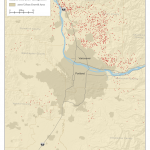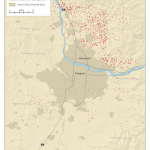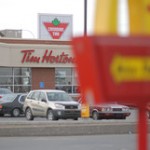Search Results
-
Do Americans really only want sprawl?
-
Towns Across the West Face a Housing Crisis. More Sprawl Is Not the Answer.
-
New Report: Rural Sprawl in Metropolitan Portland
The Portland metro area is an interesting test case for smart growth. The Oregon side of the region operates under the nation’s most mature growth management system. The Washington side operates under a newer set of rules, enacted in the mid-1990s. On paper, the two growth management programs share many features. But as a new Sightline report shows, their records have diverged: Clark County, home to the city of Vancouver,...Read more » -
Rural Sprawl in Metropolitan Portland
The greater metro Portland, Oregon, straddles two states, offering an intriguing natural experiment for gauging the effects of different growth management laws. The Oregon side operates under the nation’s oldest and most mature growth management system, while the Washington side is governed by a newer law. Over the last two decades, Clark County, Washington, accounted for the large majority of all rural and exurban housing and population growth in the...Read more » -
Sprawl Rules Fail Two Ways
Sprawl is a scourge on so many fronts. It paves over evergreen forests and productive farmlands. It sends expensive asphalt highways snaking into rural areas. It creates long, polluting commutes. And it threatens to undermine efforts to cleanup filthy stormwater runoff by pocking the landscape far and wide with impervious surfaces. Some great stories recently published in Crosscut by Robert McClure of Investigate West, an independent journalism nonprofit group, tackle...Read more » -
Tax Increment Financing, Sprawl, and Urbanism
Tax Increment Financing is an important tool for accommodating new growth in Washington, but it certainly won’t address all of Washington State’s growth challenges. Let’s consider some of the arguments against TIF (if you need to get more basics on TIF start here). The central criticism of TIF—the one that is most likely to give fodder to opponents—is that what began as an effort to rescue cities from blight, TIF...Read more » -
Wanted: Sprawl Repair Manual
Amen, brother. We need to gradually repair our sprawl. That doesn’t have to mean big increases in density. We’d build some denser centers for people who want a more urban life, but we’re not going to build townhouses in your back yard—or at least not until you and your neighbors want us to. Mostly, we just need to stitch things together so that people can walk and cycle more safely,...Read more » -
Sprawl: Regulations vs. Culture
Far be it from me to try to moderate a debate between two of my favorite big-time bloggers, but there’s something importantly right about what both Matt Yglesias and Kevin Drum have to say about sprawl—even though they disagree with each other! Matt points out that sprawl is enforced by all sorts of zoning codes and development restrictions that keep lots large, streets wide and winding, parking abundant, and homes well-separated...Read more » -
Sprawl Means More Time in Cars
A study published in the Journal of Urban Economics uses a model that combines residential density, driving and gasoline consumption that confirms something that most of us already suspect: sprawl means fewer transportation choices, more time sitting in our cars, more of our incomes spent on gas, and less time for other, more important stuff like family and friends. So, even if it’s true that people in areas that are...Read more » -
Sprawl-free Life: Freedom, Character, and Convenience
The gist: Talking about smart city planning in terms of our core values — quality of life, family, freedom, choices — and emphasizing convenience and community character will set the stage for broad support of policies that make sure we build family-friendly and climate-friendly places to live. Talking Points: connecting our core values to policies that promote healthy, climate‑friendly places to live–and limit sprawl We know in our guts that...Read more »





